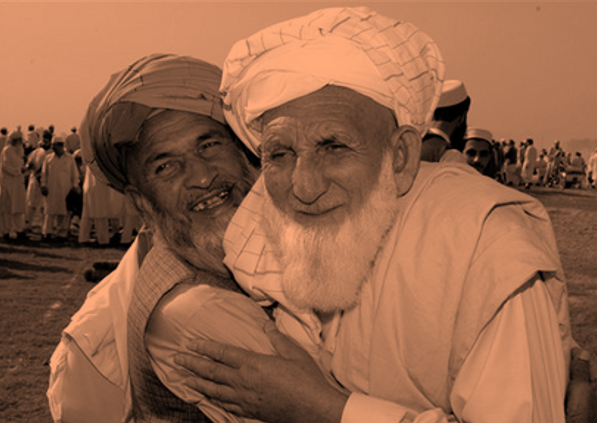By Yūsuf Badāt
ONE:
Varying Practices are Acceptable within the Framework of Islam. This is Done with Respect.
Anas (may God be pleased with him) said, “When [we] the Companions would travel, some of us would fast and others would not. Some of us offered the complete prayer while others performed the shortened (qaṣr) prayer. The one fasting did not look down on the one who was not fasting and neither the other way around. The one who shortened prayers did not belittle the one who offered complete prayers, and nor the one who performed complete prayer to the one offering the shortened prayer.” (Bayhaqī)
The people of Madīnah under Ibn ʿAbbās (may God be pleased with him) celebrated ʿEīd after 30 days of fasting, while in the same Ramaḍān, in Syria, the residents under the leadership of Muʿāwiyyah (may God be pleased with him) celebrated ʿEīd after 29 days of fasting. They respected each other’s views and did not make it a big deal. (See: Saḥīḥ Muslim)
TWO:
Pray for One Another, Despite the Disagreement
When ʿAlī Ibn Abī Ṭālib (may God be pleased with him) had a major difference of opinion during the ‘Camel Campaign’, with Ṭalḥah bin ʿObaidullāh (may God be pleased with him), he supplicated with the following words, “I pray to the Almighty that He make us both amongst those whom God will address and say, ‘Enter Paradise in peace, safe [and secure]. I remove whatever is in the hearts of resentment, [so they will be] brothers, on thrones facing each other [in Jannah].’ (Qurʾān 15:47).”
THREE:
We Do Not Show Contempt to One Another’s Viewpoints
When the Companions travelled to Banū Qurayḍah, the Prophet (peace and blessings upon him) instructed them to perform ʿAṣr prayers after reaching Banū Qurayḍah. On route, the time for ʿAṣr was near to expire. Some prayed, fearing the expiry of the time. Others chose not to pray until after entering the vicinity of Banū Qurayḍah, adhering to the literal understanding of the Prophet’s words. When the Prophet (peace and blessings upon him) was informed of this dilemma and what occurred, “He did not express contempt at either of the two groups.” – (Bukhārī)
FOUR:
Speak Positive and Respectful Words of the Other, Despite the Disagreement
ʿAbd Allāh Ibn Masʿūd and ʿOmar Ibn Khaṭṭāb (may God be pleased with both of them) disagreed in over 100 fiqh matters. Yet, they spoke highly of one another.
ʿAbd Allāh Ibn Masʿūd said about ʿOmar Ibn Khaṭṭāb (may God be pleased with both of them), “ʿOmar Ibn Khaṭṭāb served as a fortified stronghold for Islam. The masses entered his palace and did not leave its protection. When ʿOmar passed away, the fortress has weakened.” (Al-Mustadrak)
Likewise, ʿOmar said about Ibn Masʿūd (may God be pleased with both of them), “Ibn Masʿūd is a robust shoulder to lean on and an expert jurist of our time whose knowledge has benefited the masses.” (Siyar Āʿalām Al-Nubalā)
FIVE
Be Flexible for the Sake of Unity and Higher Purpose
Imam Shāfiīʾe (may God’s mercy be with him) led Fajr prayers in Imam Abū Ḥanīfa’s local masjid (may God’s mercy be with him). He did not conduct the qunūt supplication, nor did he recite bismillāh audibly. He did this out of respect to the community and the teachings of their imam, Abū Ḥanīfa. (See: Ṭabaqāt Al-Ḥanifīyyah)
“Following a weak or uncommon valid fiqh position for a higher objective such as unity is acceptable.” – (Muftī Dr. Taqī Usmānī)
“Unity is more important than my fiqh preference.” – (Sh. Dr. Abdullāh Ḥakīm Quick)
SIX
Views Can Differ, Hearts Cannot!
The Arab poet, Al-Shawqī said, “We can differ with views but not with our hearts.”





